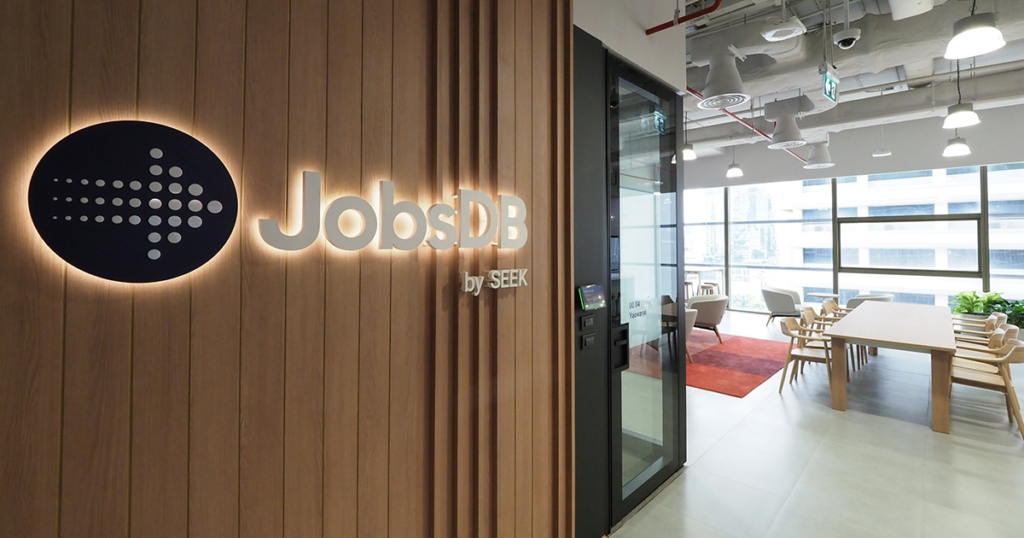Nowadays, technology plays a huge role in modern business operations. Many organizations therefore have to use technology to develop the structure in the company to be as comprehensive as possible. to create an advantage in business competition situations It is essential to know the needs of people with digital skills, known as “Digital Talent”, in order to manage and work smoothly. and finally able to increase competitiveness For this reason, entrepreneurs must develop strategies to attract new employees. Creating digital skills for existing employees to want to work with the organization It is also important to create a people-centered organizational culture in order to understand the needs of employees, known as People-First Culture.
More than half (63%) of respondents (63%) found that more than half (63%) of employees surveyed wanted career advancement opportunities in other roles, challenging jobs (49%), and wanted to be recognized in their current position (36%). Want to have a balance between life and work and working with organizations that share the same beliefs and values If entrepreneurs ignore these preliminary factors, this group of personnel may eventually decide to change jobs. Therefore, entrepreneurs need to develop work policies to eventually attract and retain Digital Talent to work in the organization.
Personnel development strategies for organizations driven by Digital Talent
Developing a people-centric strategy is the key to driving business and ultimately increasing business competitiveness. Therefore, organizations need different ways to empower their employees by developing existing skills. and creating new skills for employees both in the digital field and in other fields. The operator must consider the following.
- Individual development planning: Analyze the needs of personnel to plan for developing digital skills, both employees who already have technology skills but want to develop additional knowledge. as well as other professionals who can learn to advance into digital-related positions.
- How to properly develop skills: Design a skill development program that meets the needs of employees to increase their capabilities appropriately. and able to apply digital knowledge to real work
- Opportunities to develop skills based on individual needs: There is a budget to support employees to spend on digital courses, allowing employees to choose learning programs by themselves. To encourage the freedom to learn what you want to develop.
Building on the strengths of organizations, even though they are not tech companies, they can evolve into “employers” that attract digitally skilled talent in the following ways:
- Embracing new ways of working: Provides freedom to work in terms of time and location, with companies expanding options for employees to work remotely abroad and training programs for leadership groups on how to manage working with remote employees.
- Opportunity to create something new: Encourage working on projects that can transform digitally-related organizations. Because it will make employees feel that they are valued and are part of driving the organization to success.
- SUPPORTING HAPPINESS AND GOOD HEALTH: The design of the workplace environment in line with the changing working style. with a working space that meets the needs of each individual There are modern technology equipment. There is an activity room for physical and mental health. as well as corners for relaxation and decorations that help relax the mind, such as bringing trees to enhance the working atmosphere. This will encourage personnel to produce quality work. as well as creating new things for organizations and partners
In addition, entrepreneurs must also consider compensation (salaries, bonuses), the number of days off, holidays, job security. The relationship of those in higher positions and innovations that promote smooth work This is another reason why the Digital Talent group is also important.

Peter Bithos (Peter Bithos) CEO SEEK Asia “It is very important to focus on people as they are the key to the success of an organization. At seek, as the parent company of Asia’s leading platforms, we see the importance of people as well. based on the concept of People-First Culture
Recently, JobsDB Thailand has moved or developed a workplace to meet the needs of working in the digital age and to promote a healthy working environment for employees. To develop our organization and our customers to achieve their business goals, such as designing a workspace for everyone. There is a divided area for teams to work, talk, exchange. There are collaboration spaces and quiet spaces for people who need to concentrate on their work. Including changing the traditional working desk to be an adjustable desk to accommodate the adjustment of the work posture of employees in a variety of ways according to individual preferences. This will allow employees to choose to adjust to suit their needs as much as possible.
In addition, including taking into account the allocation of relaxation zones for working people to use to relax during the day Whether it’s an appointment to talk and meet with colleagues There is a corner for dining or recreation activities to suit individual lifestyles. There is also a private corner for employees, such as having lockers for employees to increase flexibility in using the co-working space or having a multi-purpose room that employees can use when they want to rest in peace and privacy. or used as an area for prayer and prayer (multi-faith purpose) according to personal beliefs All of which help promote good physical and mental health for employees.”
“We have implemented the employee happiness policy to develop into new workplaces, such as relocating and redeveloping JobsDB Thailand’s office space according to the people-first culture approach. Like SEEK in other countries, it is also in this direction. This helps SEEK to create a collaborative culture. and supporting employees in a truly people-first approach,” added Peter.



